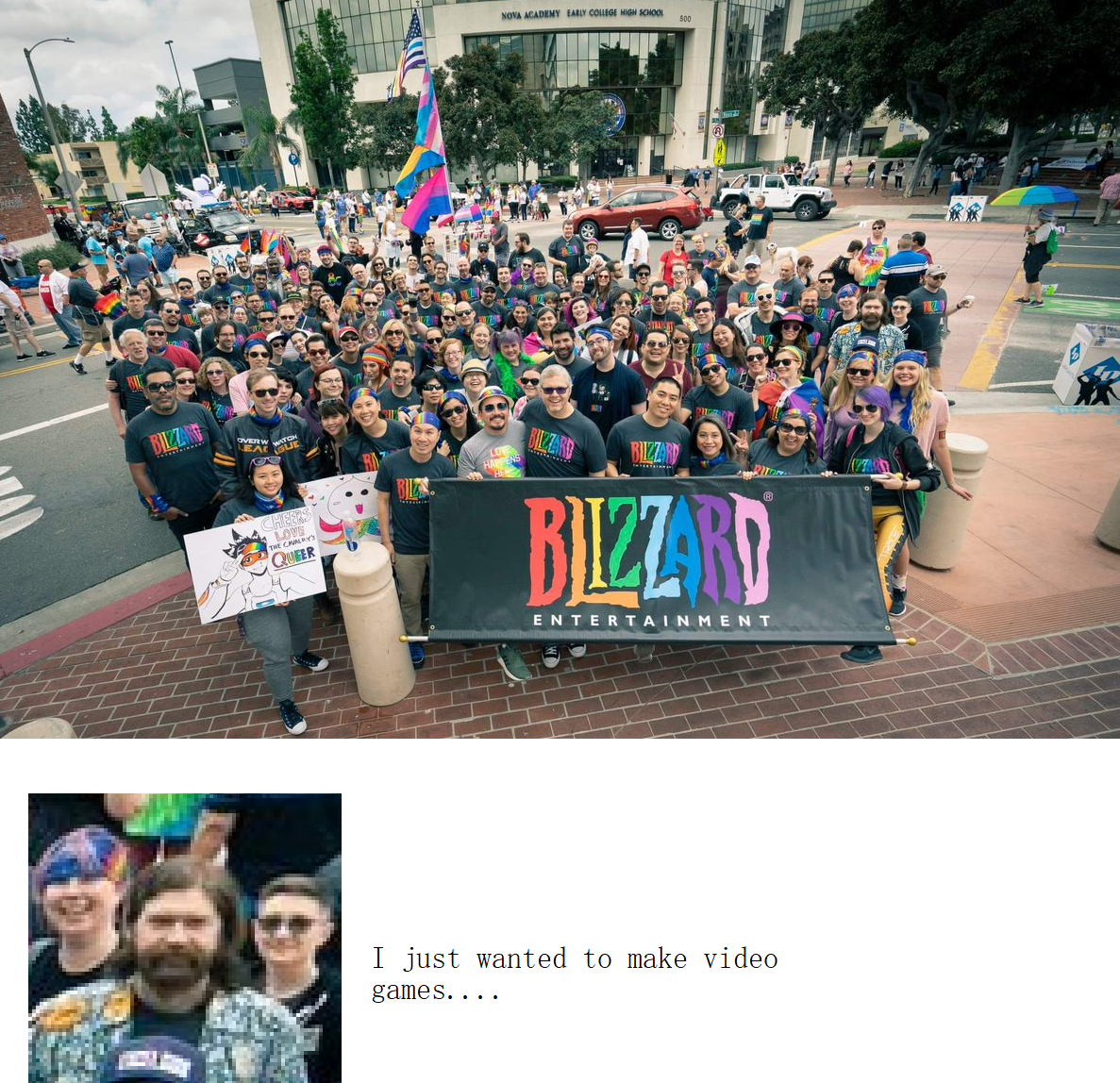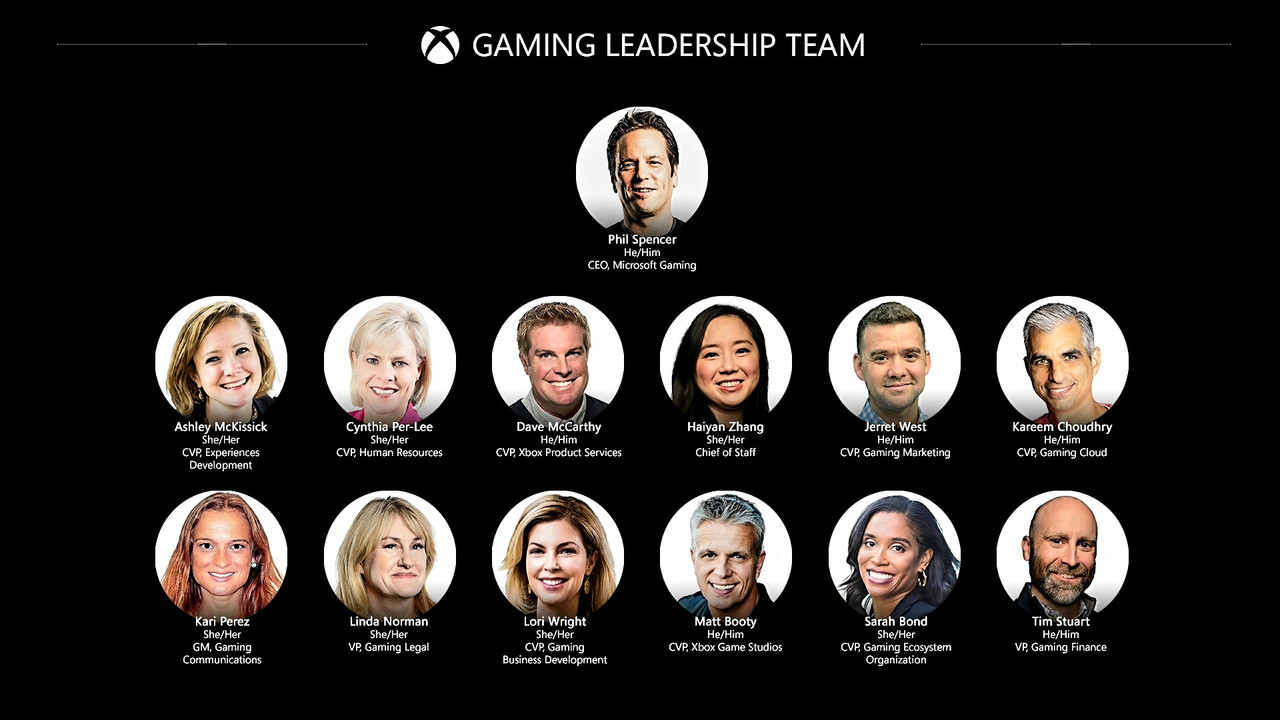The list of Intellectual Properties now owned by Microsoft...
Blur
Caesar
Call of Duty
Candy Crush
Crash Bandicoot
Diablo
DJ Hero
Empire Earth
Gabriel Knight
Geometry Wars
Guitar Hero
Gun
Hearthstone
Heroes of the Storm
Hexen
Interstate
King’s Quest
Laura Bow Mysteries
The Lost Vikings
Overwatch
Phantasmagoria
Pitfall
Police Quest
Prototype
Quest for Glory
Singularity
Skylanders
Solider of Fortune
Space Quest
Spyro the Dragon
StarCraft
Tenchu
TimeShift
Tony Hawk’s Pro Skater
True Crime
Warcraft
Zork
This list has been making the rounds among "games journalism" sites that, as with the overwhelming majority of data they cite, is woefully inaccurate. Apart from arbitrarily excluding myriad co-owned IPs and niche titles (Rock n' Roll Racing, Blackthorne, Manhunter, etc), it includes a number of defunct IPs that are unlikely to enjoy any resurgence in popularity.
So, let's boil this down into the categories of...
Stagnant - IP that was relegated to the past in favor of other franchises.
Solitary - IP that failed to garner sufficient success to merit a sequel.
Active - IP that continues to be supported, typically across multiple platforms.
...which leads to...
STAGNANT
Caesar --- last entry was released in 2006, two years prior to Vivendi's merger with Activision, by the now defunct Tilted Mill Entertainment that appear to have ceased operating in 2013. The final game, Caesar IV, received a lukewarm critical reception and poor sales.
DJ Hero --- last entry was DJ Hero 2 in 2010, following which Activision's publishing department cited "declines in the music industry" and "licensing issues" as justifications for discontinuing the series in early 2011.
Empire Earth --- last entry in 2007, with the worst reviews and sales figures to date. The Java-based mobile spinoff from two years prior was, purportedly, more financially successful than EE3 given the latter's significant development cost.
Gabriel Knight --- last entry was technically in 1999, with "Blood of the Sacred, Blood of the Damned" though the original was remastered in 2014. Jane Jensen, the author, retains rights to the character and attempted an unsuccessful Kickstarter campaign in 2012.
Geometry Wars --- last entry in 2014, later re-released in a physical disc format in 2016. The bizarrely named Stephen Cakebread, creator of the series, abandoned it in 2016 to pursue work with the Need for Speed franchise.
Guitar Hero --- last entry in 2015, prior to the great peripherals collapse. Officially discontinued after Activision closed their music division and severed any existing licensing deals.
Hexen --- last entry in 1997, with an expansion in 1998 and digitally released in 2007. The mediocre, and independently developed, "Graven," released in 2021, was intended to act as a spiritual successor to the franchise.
Interstate --- last entry in 1999, alongside its spinoff series, the "Vigilante 8" games, which also ceased in 1999 with a Gameboy Color port.
Laura Bow Mysteries --- last entry in 1992, re-released for modern computers on GOG in 2017 but lacking any interest since, just one among many casualties of the point-and-click adventure genre.
The Lost Vikings --- last entry in 1997, ported to numerous platforms though the only appearance these guys have had since is a minor homage in certain Blizzard-developed titles.
Phantasmagoria --- last entry in 1996, with the third game cancelled following Sierra's acquisition by CUC International (...how apropos) as, according to comments made in 2019 by Ken Williams, co-founder of Sierra Entertainment and husband of series developer Roberta Williams, "individuals in the management" disagreed with the content based on "religious reasons."
Pitfall --- last entry in 1998, barring the in-name-only endless runner adaptation for iOS in 2012. An attempted Kickstarter for a more modern version raised a mere $31,207 of its 900k goal.
Police Quest --- last entry in 1999, though the adapted/derived series of SWAT endured through 2008. A Kickstarter campaign failed here, as well, though many were optimistic the series would be picked up anew when Activision reactivated the Sierra label in 2014; as it turns out, they merely did so in order to release the games digitally. "Ready or Not," an independent spiritual successor, became Steam's bestselling title during the final week of 2021.
Prototype --- last entry 2012, re-released to PS4 and XBOX One in 2015. Poor sales caused Activision to downsize the developing studio, Radical Entertainment. Fans were slightly more generous than critics in rating Prototype 2, though it dropped from the top sales charts after a mere two weeks.
Quest for Glory --- last entry in 1998, with the unique mechanic of a narrative that continued directly throughout and allowed save importing. The complexity of continuing such, alone, contributed to its dissolution coupled with a sub-50k sales figure for the final installment "Dragon Fire."
Solider of Fortune --- last entry in 2001, though digitally re-released in 2018 as a bundle. It's online-only spinoff was a 2010 Korean-exclusive that was shutdown shortly after its release.
Space Quest --- last entry in 1996, with a fan-made sequel in 2011. Attempts were made to continue the series at Sierra in 1997 and 1999, in addition to a reboot in 2002 for the XBOX that was cancelled after a year of development.
Tenchu --- last entry in 2008, though Activision- Blizzard only owns the rights to earlier titles that culminated in 2004; FromSoft and Ubisoft are otherwise listed as the IP owners.
True Crime --- last entry in 2005, whose poor sales figures, competing directly with the GTA titles it mimicked, led to its demise. The last intended sequel, "True Crime: Hong Kong," was cancelled and publishing rights given to Square-Enix, who adapted it into the "Sleeping Dogs" game of 2012. An online spinoff of Sleeping Dogs, which would have licensed properties from Activision, dubbed "Triad Wars," was cancelled in 2015.
Zork --- last entry in 1997, the eleventh official title, though a browser-based licensed game was released in 2009 and shuttered in 2011.
SOLITARY
Blur --- released in 2010, via Activision subsidiary Bizarre Creations, unfortunately in tandem with the similar "Split/Second" and leaning heavily into a multiplayer component for longevity. It failed, spectacularly, such that the entire studio was canned, along with the sequel that was already in development. Poor sales and the end of licenses permitting the use of real-world car models forced the title to be pulled from digital storefronts in May of 2013. A top-down, freemium mobile title was licensed in 2013 but disappeared within the year.
Gun --- released in 2005, on every major platform, with a Playstation Portable port less than a year later. It sold well, moving nearly one and a half million units, was critically praised and earned several awards in spite of the various "noble savage Indian" controversies it engendered. Developer Neversoft Entertainment were given the greenlight to proceed with a sequel in 2006, but opted to pursue additional Tony Hawk games instead.
Singularity --- released in 2010, its sales figures "disappointed" Activision, who had anticipated a million units and had to be content with only 400k. The game is often cited as an overlooked gem of its generation, a sentiment with which I agree, but the poor sales performance and issues during development (it was initially cancelled and then rebuilt from the ground-up in ten months), resulted in a wave of layoffs. Singularity was the last independent Raven Software project, their few remaining developers shuffled over to support the Call of Duty franchise.
TimeShift --- released in 2007, the game endured repeated delays as development milestones were consistently missed and publishing rights passed between Atari and Sierra, then merged into Vivendi. The developer, Saber Interactive, has since been purchased by the Embracer Group.
ACTIVE
Call of Duty --- last entry in 2021
Candy Crush --- last entry 2015 (update in 2021)
Crash Bandicoot --- last entry in 2020, mobile port in 2021
Diablo --- last entry in 2017, remaster in 2021
Hearthstone --- last entry 2014 (update in 2021)
Heroes of the Storm --- last entry in 2015 (update in 2021)
King’s Quest --- last entry in 2015 (final DLC in 2016)
Overwatch --- last entry 2016 (update in 2021)
Skylanders --- last entry in 2018
Spyro the Dragon --- last entry in 2018
StarCraft --- last entry 2016, remaster in 2017
Tony Hawk’s Pro Skater --- last entry in 2020
Warcraft --- last entry in 2020, latest WoW update in 2022
...what are we genuinely left to assess? The solitary ones may be placed on GamePass or otherwise digitally re-released, but I have no confidence whatsoever that any of them will merit additional sequels. As for the stagnant IP, what could possibly come of it? Guitar Hero VR? A potential SWAT cashgrab? Which leaves us with the active stuff, as dominated by Blizzard titles.
Where I'm concerned, I'm entirely disinterested in more than half the remaining items. I played Starcraft and Warcraft II as a teen, but gradually transitioned from RTS to turn-based games, then into roleplaying. The last CoD game I touched was "World at War," whose campaign was laughable and newer entries are too dudebro for my taste, with even the supposedly high-skill compilations I've seen eliciting a visceral sense of disdain when witnessing the absurd compensations for console players (throwing a knife in the relative vicinity of a foot causes immediate death and headshots resulting from firing when the onscreen reticle is a good inch off-target). Crash and Spyro are both console-centric series I lack the rose-tinted glasses to enjoy, having attempted both, while Overwatch, Hearthstone and Heroes of the Storm are all from genres I detest.
So, am I to quake in dismay that Microsoft now owns Diablo? Or is it King's Quest I should lament?
King's Quest caused its own demise with obtuse puzzles and insta-kill scenarios. The 2015 reboot was not without charm, but for all the "star power" they pushed behind it with celebrity voice actors, it failed to measure up against its contemporaries.
As for Diablo: fantastic!
Or have you all forgotten what became of the franchise that spawned more clones than any other? More than GTA, more than Doom, there are Diablo clones up the wazoo! And some are incredible in their own right, with Grim Dawn and Path of Exile taking centerstage, Torchlight 2 in the wings for a more lighthearted jaunt and hundreds of others jostling for attention.
Blizzard, meanwhile, gave us the Real Money trading market in D3. They chose rainbows and unicorns over the Gothic aesthetic, with World of Warcraft models and armaments. We were scorned for not slurping up their mobile diarrhea with Diablo Immortal. Told we were bigots because we dislike the tranny they replaced the Amazon with in the D2 remaster. The perpetual "always online" propaganda.
Some loss.
Frankly, this news strikes me as a lot of tears shed over naught. Blizzard and CoD fanboys may be quaking, but I'm as concerned by this as if I'd learned that the McDonald's Corporation just bought up Kroc: so, the manufacturers of vile meat slurry they deign to call a hamburger now owns Taco Bell? Another "restaurant" I will never patronize?
This isn't the end of the gaming sphere.
This doesn't affect games any of us should be concerned about, even remotely.
This is meaningless.





















